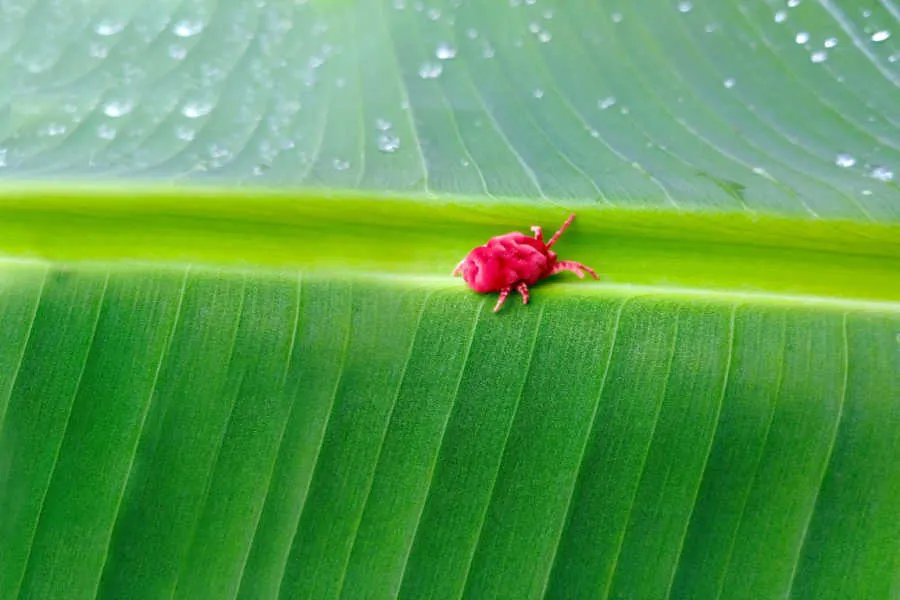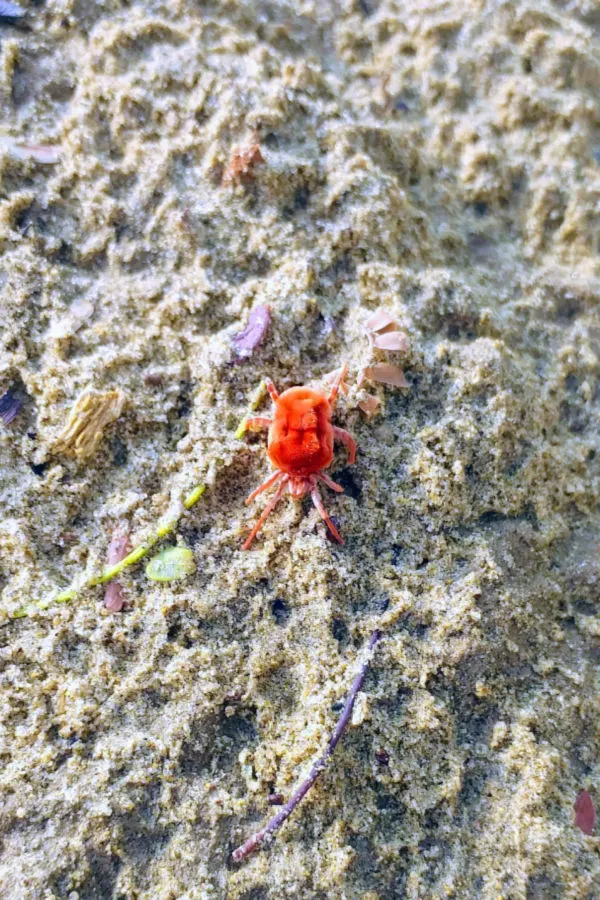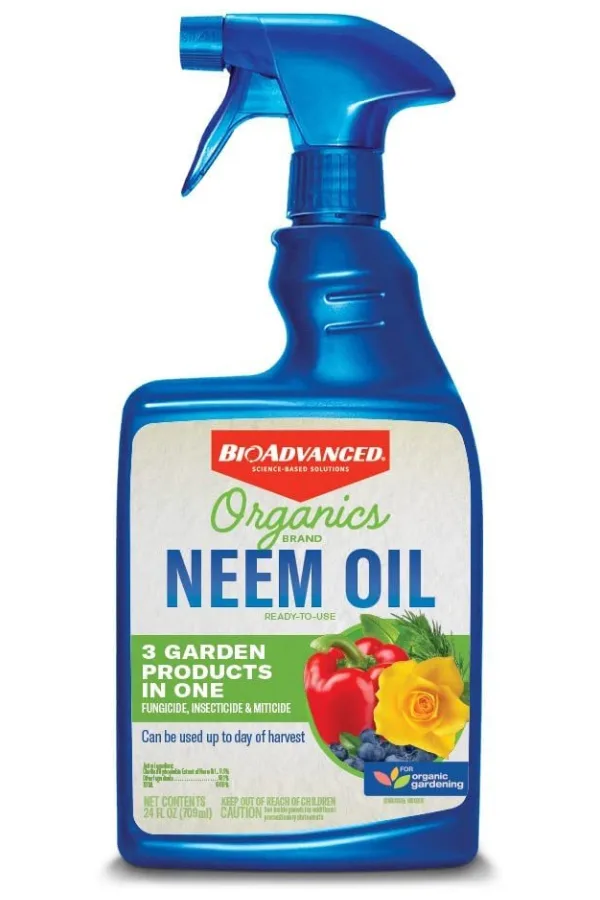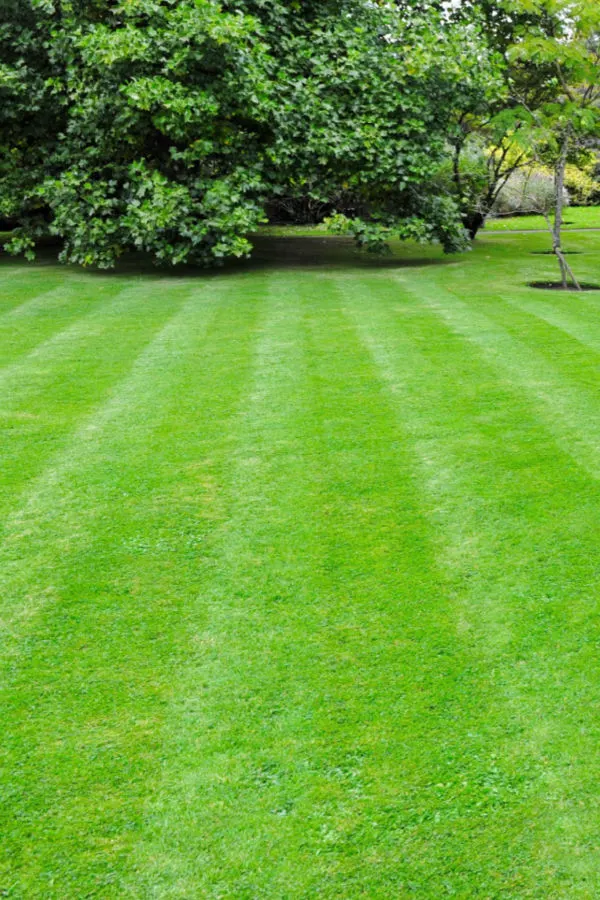Looking for a way to get rid of chiggers from your lawn and landscape – and, more importantly, keep them off of you?
If you have ever had an encounter with chiggers, you know just how incredibly monstrous these tiny little creatures can be. One thing is for sure, although they may be hard to notice with the naked eye, the bites and rashes that chiggers leave behind can be painful to deal with!
So what exactly are chiggers? Technically, the small insects belong to the arachnid family – the same one that includes spiders and ticks. But chiggers develop differently than their other close relatives – and are actually more of an issue when they are larva and not adults.

For chiggers, it is only the larva stage that bite. The larva bites to inject saliva into the cells to liquefy and feed on them. While feeding, they can remain on their host’s body for a week or more. For humans, it is usually for a shorter time period, but certainly long enough to cause serious blisters, rashes and itching.
We will cover what you can do for chigger bites at the end of the article, but first, let’s take a look at the issues they cause, and how to eliminate them from your yard.
The Tell Tale Signs Of A Chiggers Bite
What makes an attack from chiggers especially bad is that they infest in clusters with multiple bites. Usually, chiggers latch onto the host (including humans) and crawl around to find suitable skin patches. Once they start biting, you will notice symptoms in just a few hours.
One of the most difficult things about dealing with chiggers is that they are hard to spot. Adults measure around 1/50th of an inch in length, and the larva can be four times smaller than that! Even though their exterior body can be colored in bright red, orange or yellow, at that size, they are nearly impossible to spot.

For most humans and animals, the bites will appear on their legs. This is simply because chiggers cling to vegetation, and legs are always the lowest to the ground. However, if walking through high weeds, they can easily find their way onto open skin anywhere.
Chigger bites do not cause infections, but the skin cracking can make you prone to one. And the itching can become unbearable quite fast. Surprisingly, once the larva matures into adult mites, they do not bite anymore, instead opting to feed on tiny insects and insect eggs.
How To Get Rid Of Chiggers
When it comes to getting rid of chiggers in your yard and landscape, there are two important steps to take for total control. The first is to treat your lawn and plants to kill any existing chiggers that are present. The second is to then eliminate the areas where chiggers like to live and lie in wait.
Eliminating Existing Populations – How To Get Rid Of Chiggers
There are actually a few organic and natural products that are quite effective in controlling chigger populations in lawns and landscapes. Here is a look at each along with how and when to apply them for maximum control.
Neem Oil – How To Get Rid Of Chiggers
Neem oil is a natural insecticide oil that is created when neem tree seeds are pressed. The resulting oil is highly effective at killing chiggers on contact. Best of all, when applied correctly, it can keep important pollinators like honeybees and butterflies safe. See: How To Use Neem Oil

To use, mix pure neem oil with water at the recommended rate (will vary by product). Next, simply spray your lawn to kill chiggers at every stage – from larva through adult. It is best for protecting other beneficial insects to spray neem oil in the early morning or late evening, when pollinators are not out.
Diatomaceous earth – How To Get Rid Of Chiggers
Diatomaceous earth is another great option for controlling chiggers naturally. The powdery substance, made from the fossilized remains of ancient aquatic micro-organisms, cuts the exterior of chiggers when they come in contact with it. For chiggers, it results in dehydration and death.
Since the powder is natural and non-toxic, sprinkling it in your garden or lawn will not cause any harm, or put any of your flowers, vegetables or other fruit n danger either. Product Affiliate Link : Diatomaceous Earth
Using Sulfur As A Repellent
Probably the most common answer to keep chiggers out of a yard is using sulfur. Sulfur will not kill chiggers, but it will keep them from ever setting up shop.

The best way to put down sulfur is to use powder. Not only does it cover more area and save on cost, it also is not very concentrated. To be effective, you will need to apply it every few days for a total of three applications over a seven to ten day period.
Eliminating Chigger Habitats
Beyond spraying to eliminate or deter chiggers, you can also greatly reduce their population by eliminating the areas they love most.
Chiggers don’t travel much on their own. After hatching, they will usually stick to the grass and leaves nearby. The taller the grass, the more cover it will provide for chiggers. They also happen to prefer moist areas, and taller stands of grass keep moisture in.
Mow your grass frequently so that they don’t have a shaded and moist area to live in. Don’t forget to use a string trimmer to keep grass edges down against barns, trees and outbuildings. These are favorite hang outs for chiggers as well!
Wood piles are another common outdoor area that chiggers love. Not only does the wood pile provide plenty of shade and protection, they also hold in plenty of moisture for them too. To help prevent infestations, keep woods stacked neatly and covered.

Finally, remove any dead or decaying shrubs and plants and keep existing bushes trimmed often. The more foliage and vegetation that exists, the more likely it will be that chiggers will make it their home.
Chiggers Indoors – How To Get Rid Of Chiggers
Chiggers can become an issue inside your home as well if you happen to bring them in. The good news is chiggers can’t survive indoors for long, but you can do a few things to hasten their departure.
For starters, it is important to vacuum any carpeted surfaces. Chiggers can often infest carpets and rugs indoors as they provide shade. Vacuuming them will eliminate this issue quite quickly. In addition, treat any hard surfaces with alcohol-based disinfectants.
Any linen that has come in contact with affected surfaces or your body should be washed with hot water and soap. This includes sheets or any clothes that you might have been wearing when outside around chiggers.
How To Deal With Chigger Bites – How To Get Rid Of Chiggers
As explained prior, rashes and inflammation of chigger bites usually appear a few hours after the actual bites. Rather than waiting for these symptoms to appear, if you have been in areas likely to be infested by chiggers, it is important to take a shower as soon as possible.

Chiggers can fall off your skin even with the slightest force. A strong stream of water from a shower will dislodge them and greatly reduce any chiggers that may be clinging to you. Use soap and water to thoroughly clean the affected bite area. Do so while taking a hot shower to eliminate any leftover larva.
Antihistamine ointments (for example calamine lotion) can come to your rescue in case of chigger bites as well. These are readily available over the counter and can work well to reduce the pain from bites and rashes.
Handling Severe Bites – How To Get Rid Of Chiggers
If the bites are severe, you can also use a cold compress on the inflamed area. Usually, chigger bites don’t cause infection and go away within four days. If that doesn’t happen, you might need to seek medical help.
Of course, it goes without saying, if you have had issues with chiggers in your yard, always try to wear protective clothing whenever heading out to areas where they might be. Protective clothing is also important if you are venturing out to wooded areas or parks where chiggers might be as well.
Full sleeve shirts/t-shirts, tall socks and high boots with your pants tucked in them are the best defense of all. Here is to getting rid of chiggers in your yard this year, and to keeping your skin safe from attack!
Follow Our Facebook Page For Great Gardening Tips And Advice! This Is My Garden Facebook Page
This Is My Garden is a garden website created by gardeners, for gardeners. Jim and Mary Competti have been writing gardening, DIY and recipe articles and books and speaking for over 15 years from their 46 acre Ohio farm. They publish three articles every week, 52 weeks a year. Sign up today to follow via email, or follow along!
